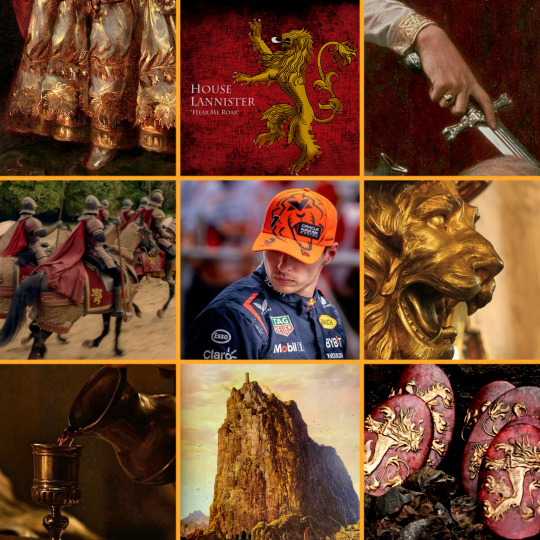#and then who is a lordly/knightly/other house under them
Explore tagged Tumblr posts
Text









Motorsports x A Song of Ice and Fire Houses!! - 🏁
(Click for better quality)
#MY AUTISM MY AUTIMS#hi guys one of my longest spins is indeed asoiaf#its BAD#i am indulging autism#this was so fun#my bf told me who to come up with houses for#once i get more established in who is each house i need to#decide who is a great house#and then who is a lordly/knightly/other house under them#but in general this is for their vibes#if you dont agree with me urmmmm ur wrong!#im always correct#motogp#f1#formula 1#formula one#asoiaf#a song of ice and fire#game of thrones#got#marc marquez#marc márquez#sebastian vettel#max verstappen#pecco bagnaia#francesco bagnaia#daniel ricciardo#valentino rossi#celestino vietti#mika hakkinen
38 notes
·
View notes
Note
Where does the internal heirarchy of each region comes from? As in how do you know who are lesser lords and high lords? I thought in Westeros you had a three tier system of King>Lord Paramount>Vassal Lords.
It’s a bit more complicated than “King>Lord Paramount>Vassal Lords.” Under the Lords Paramount of the Great Houses, you have the Lesser Houses. But the Lesser Houses can be subdivided in different ways.
Principal vs. Non-Principal
For example, you have the distinction between the Principal Houses and the non-Principal Houses. Principal Houses are the leading Houses of each Kingdom, and not every Lesser House is a principal House; we don’t know precisely what it entails to be a principal House or what kind of status it offers. So for example, the Karstarks, Umbers, Flints, Mormonts, Hornwoods, Cerwyns, Reeds, Manderlys, Glovers, Tallharts, and Boltons are considered principal Houses, but the Dustins and the Ryswells are not, neither are the Norreys or the Liddles or the Harclays, etc.
Lordly vs. Masterly/Knightly
One of the major distinctions between the lesser Houses is the question of whether they are lordly or masterly/knightly. Lords have the right of pit and gallows but landed knights or masters do not. This can be a potentially confusing distinction, however. There are many petty lords who jealously cling to that right, but who are far weaker than landed knights - think of the difference between the Lords of House Baelish and their few sheep versus the Knight of Ninestars who can raise a thousand men. Likewise, the Glovers and the Tallharts may be Masterly rather than Lordly, but they remain principal houses of the North and their fiefdoms are quite large and important.
Direct Vassal vs. Subinfeudation
Another major distinction, which may or may not be tied up in principal vs. non-principal, is whether the House in question pledges its fealty directly to the Lord Paramount or whether they are vassals of vassals. For example, the Webbers and Osgreys are bannermen of the Rowans who in turn are bannermen of the Tyrells, which points to the higher status of the Rowans than either.
But again, things can be complicated/confusing: House Hightower and House Mullendore are both principal Houses of the Reach, but the Mullendores are sworn to Oldtown rather than to Highgarden directly. Does this mean that the Mullendores are less than the Vrywels or the Florents?
Status, Wealth, and Power
Another thing that confuses this is that status, wealth, and power don’t always track with one another. There’s lots of examples of Houses that have a lot of prestige but nothing else - think of the Westerlings, with their ancient First Men blood and their royal connections, but almost no money and land and a castle sinking into disrepair, or the touchy Waynwoods whose pride forces them to live above their means, allowing Littlefinger to buy up their debts.
Likewise, there’s other examples of Houses that have a lot of money but little prestige - the Freys are considered jumped-up toll collectors, the Butterwells are called cow thieves, the Spicers only two generations away from being “in trade.” And there’s other examples of Houses with wealth but no power - the Lannisters of Lannisport are rolling in gold but they’re second fiddles; the Arryns of Gulltown married into merchant money, but don’t control Gulltown (rather the Graftons do, although the Shetts clearly have a good deal of power there too).
And there’s some Houses that have a good deal of power beyond perhaps what their economic power would suggest - think about the Brackens and Blackwoods who somehow manage to be strong enough that their feuds can’t be suppressed by Lords Paramount or Kings; or the way in which the Boltons have roughly as many soldiers as the Freys without anything like the economic advantages of the Twins.
88 notes
·
View notes